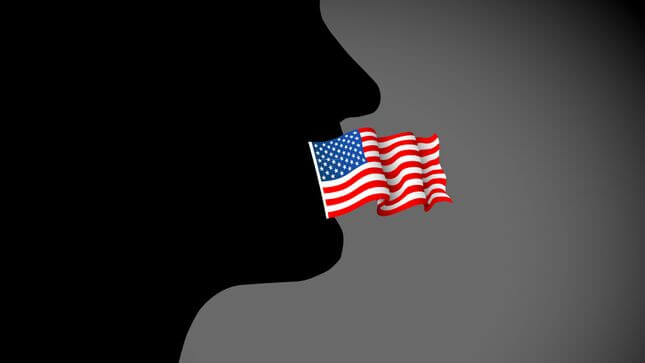An Idiot's Guide to Free Speech
Latest

Bros/MRAs/bigots/internet commenters/the population at large: We don’t think “free speech” means what you think it means.
University of Michigan’s Pi Kappa Alpha brothers celebrated America over the weekend (as you do) by taking half-naked photos of themselves wrapped in an American Flag. The invitation circulated around campus and then around the internet, because who can resist frat bros + trying-too-hard-to-be-scandalous party invites? (Sample quote: “America is a place where drinking until you puke means drinking until you win. America invented the blunt. And LSD.”)
In response to the media attention, a PIKE brother emailed to tell us that their chapter had been suspended and asking us for “something between support and advice; whether to succumb to the PR whores and try to make peace, or defend the fact that we violated no University of Michigan standards nor any standards as defined by Pi Kappa Alpha..Please help us support our right to the freedom of expression.”
-

-

-

-

-

-

-

-

-

-

-

-

-

-

-

-

-

-

-

-

-

-

-

-

-

-

-

-

-

-

-

-

-

-

-

-

-

-

-

-








































